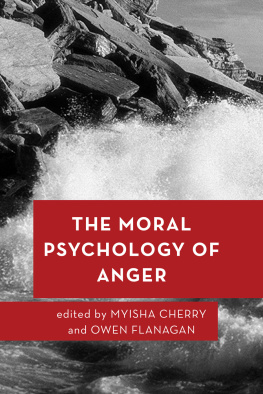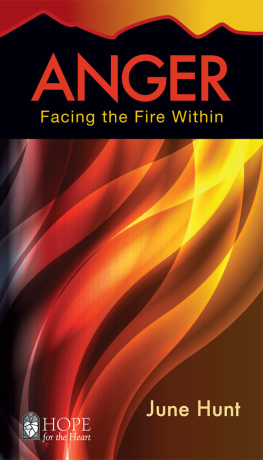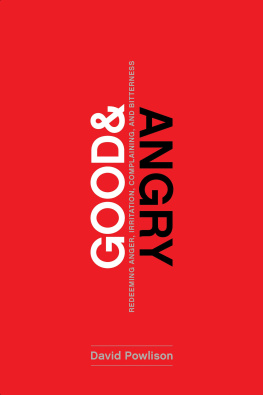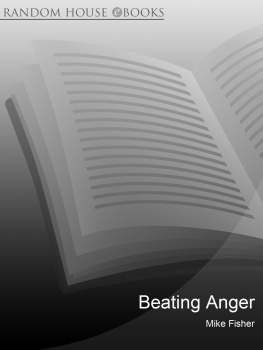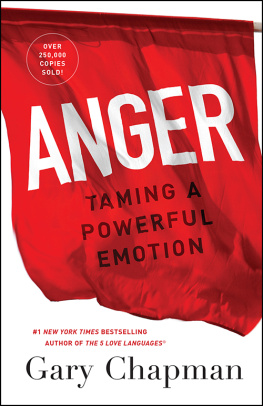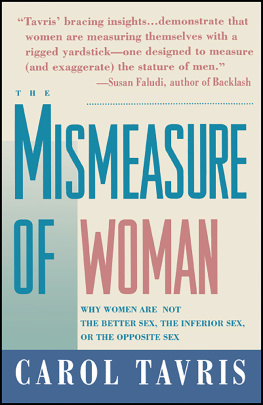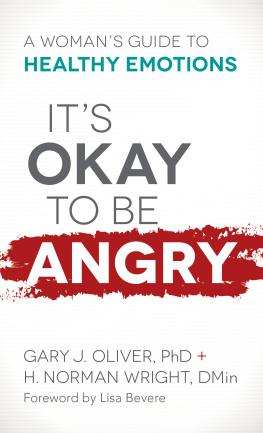The Case for Rage

Oxford University Press is a department of the University of Oxford. It furthers the Universitys objective of excellence in research, scholarship, and education by publishing worldwide. Oxford is a registered trade mark of Oxford University Press in the UK and certain other countries.
Published in the United States of America by Oxford University Press
198 Madison Avenue, New York, NY 10016, United States of America.
Oxford University Press 2021
All rights reserved. No part of this publication may be reproduced, stored in a retrieval system, or transmitted, in any form or by any means, without the prior permission in writing of Oxford University Press, or as expressly permitted by law, by license, or under terms agreed with the appropriate reproduction rights organization. Inquiries concerning reproduction outside the scope of the above should be sent to the Rights Department, Oxford University Press, at the address above.
You must not circulate this work in any other form and you must impose this same condition on any acquirer.
CIP data is on file at Library of Congress
ISBN 9780197557341
eISBN 9780197557365
DOI: 10.1093/oso/9780197557341.001.0001
In memory of
Thandeka Mdeliswa,
aka
Superstar.
You will always be loved
and never forgotten!
Contents
I write these words in the fall of 2020. The world is still in the grip of a global pandemic that began in early March of this year in the United States. In response to COVID-19, classes at the university where I teach immediately went online. I prepared myself as best I could for this new normal of academic life. The course I taught that spring was a social philosophy course, Struggle and Protest. My students and I attempted to make sense of the nature of resistance and arguments for its justification, as well as the role of anger and hope in the face of what seems like perpetual struggle. I had never taught online before. Most of my students had never taken an online class. It was a new experience for us all. I was ever so conscious of the unique challenges my students, who are predominately people of color and first-generation college students, would have during this tough time. How could they focus on philosophical questions when they and people who looked like them were losing their jobs, falling ill, even dyingdifficulties that data reveal were highly correlated with race.
The course, unfortunately, could not have been timelier. As our semester went on, anti-racist protests were occurring around the world in response to the police killings of Breonna Taylor in March and George Floyd in May. Video footage revealing the details of the killing of Ahmaud Arbery appeared in March. Two months earlier, white men chased him down and murdered him in a case of jogging while Black. Witnesses reported that the shooter used a racial slur after the shooting, and the white men were authors of several racist posts on social media. Arberys killers would have gotten away with murder if journalists didnt publicize the story. My students, of course, were angry.
During this time, more people began to take up the mantra of Black Lives Matter (BLM). This uptake was quite different from when Alicia Garza, cofounder of Black Lives Matter, originally expressed it online in response to the shooting of Trayvon Martin in 2012. This time it appeared that America was finally getting it. People publicly incited All Lives Matter retorts less and less. Businesses released online statements in support of Black folk. Institutions took up the challenge to become more diverse and inclusive. And allies in other countries marched in solidarity, as well as protested racism occurring on their own soil.
However, police shootings of Blacks continued. A white teenager was arrested for killing two Kenosha, Wisconsin, protestors. He was eventually released on $2 million bail, paid for by a pillow entrepreneur and a 1980s sitcom actor. Hate groups like the Proud Boys went public later in the year. A Republican legislator in New Hampshire told people on Facebook to burn and loot homes with BLM signs. A twenty-four-year-old white man was charged with ethnic intimidation in Michigan for shooting into a familys home because they had BLM signs in their window. Racism can be quite resilient.
British Nigerian actor John Boyega, known for his role in various Star Wars movies, used his platform to speak out against racial injustice. Speaking with pain and anger at a London rally organized to protest the shooting of George Floyd he said, Look, I dont know if Im going to have a career after this, but f that.... Black lives have always mattered.... We have always been important. We have always meant something. We have always succeeded regardless. And now is the time. I aint waiting. I aint waiting.
The anger many were feeling was not just in response to the police. This was a rage that was boiling over from other racial incidents and injustices. It was directed at the forty-fifth president. During the presidents election campaign and his presidency, he often expressed
Its easy to blame a president, white nationalists, and white supremacists for Americas racial problems. If only it stopped there. Thanks to technology, many began to share their own racial encounters. Through online videos and social media testimonies, we increasingly saw that people were constantly harassing Latinx folk for speaking Spanish and accusing them of being illegal, white women were calling the police on Blacks for no reason other than being Black, and only a few people seem to care about or were bringing mass attention to missing Indigenous women in the United States. W. E. B. Du Bois wrote in the second chapter of his seminal text The Souls of Black Folk that the problem of the twentieth century is the problem of the color line. We are twenty years into the twenty-first century and four years from when the first Black US president left office. Still this problem exists. This problem and Americas unwillingness to address it have made many people angryangry like never before.
Booker T. Washington, a figure whose work my students and I engaged with in the course, expressed to whites in his Atlanta Compromise speech that the formerly enslaved were the most... unresentful people that the world has seen.Blacks as a group are not by their very natures a resentful people, this doesnt mean that today many Blacks and nonwhites (along with their white allies) do not have justifiable reasons to be angry at racism, and many are in fact angry. So what should Black people do with this anger? What should anyone do with anger at racismthe profound, justified rage that, not only after the events of 2020, but in the public and private sphere pre-2020, so many of us have felt and are still feeling?
In an essay for The Atlantic titled Anger Can Build a Better World, This convinced me even more that there needs to be an elaborate case made for rage at racism. Thats what youll find in this book.
How can we make sense of this strong emotion we feel in response to racisms many forms and manifestations? Why are so many afraid of it? How can we better respond to others who are angry? Does anger have a role in anti-racist struggle and protest? The more we reflect on these questions, the better equipped we are to fight the good fight, or at least get out of the way of those who dare to step on the battlefield for racial justice.


